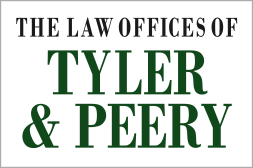In Texas, many men enjoy leading an active lifestyle. As he gets older, a man may seek to increase his strength and vitality by boosting his testosterone level. In recent years, there has been a proliferation of sources providing testosterone therapy for men who believe they are suffering from a testosterone deficit or what is now commonly referred to as “low-T.”
Certainly the companies, which sell the prescription testosterone gels, patches and injections, would like you to believe that the therapy is a safe and effective way to for you to revitalize yourself. But, there is data that should give pause if you have participated in testosterone therapy.
A University of Colorado School of Medicine geriatrics professor cites a study conducted in 2010. The National Institutes of Health funded the study, which was called Testosterone in Older Men. It revealed an increased rate of high blood pressure, heart attacks and strokes among men who utilized testosterone gel. This increased rate was in comparison to men in a control group who were issued a placebo.
But what are the physiological effects causing these dangerous health conditions? According to a Harvard Medical School endocrinology professor, increasing the amount of testosterone in the body may cause an increased red blood cell count which can actually cause the blood to thicken. This thick blood can place stress on the heart to maintain circulation. As the Harvard professor explains it, some testosterone patients are more susceptible than others to the increase.
It was recently announced that labels warning consumers of the possibility of blood clots must accompany testosterone products that have been approved by the Food and Drug Administration. In addition, the FDA is continuing to assess the possible heart attack, stroke and death risks that testosterone products may present users.
If you believe you have suffered heart related problems due to testosterone treatment, you might wish to contact a lawyer. A Texas testosterone therapy lawyer may be able to assess the possibility of seeking compensation from responsible parties.
Source: livescience.com, “Popular Testosterone Therapy Lacks Evidence,” Jillian Rose Lim, July 08, 2014
